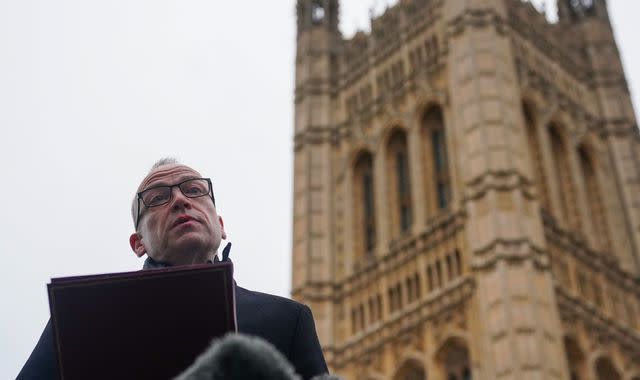Northern Ireland power-sharing deal could finally end Brexit's constitutional chaos

"Any British government needs to pay attention to Ireland," Sinn Fein leader Mary Lou McDonald said.
"I would dearly like the Tory government, the current administration, just to pay a bit more attention," she added.
It was the UK government's failure to appreciate the complexities of the island next door that led to the collapse of power-sharing government in Northern Ireland.
Brexit brought the distant - and painful - memory of a militarised land border between Belfast and Dublin back into sharp focus.
Its land border with the Republic of Ireland makes Northern Ireland the only part of the UK to share a land border with the EU.
Eurosceptics appeared to conveniently forget that the EU would have to protect its single market.
Ireland, the EU and the US argued that a north-south land border would not be compatible with the peace process.
Dependent on unionist votes at Westminster, the UK government argued that an east-west sea border was out of the question.
But desperate to "get Brexit done", Boris Johnson U-turned on his pledge to unionists, conceding on a sea border between Great Britain and Northern Ireland.
Under pressure from hardline unionists, the DUP pulled the plug on power-sharing government at Stormont.
Brexit and its consequences had derailed the carefully crafted form of government at the heart of the Good Friday Agreement.
Theresa May, Boris Johnson and Liz Truss, more as foreign secretary than prime minister, were unable to square the circle.
Rishi Sunak's Windsor Framework did not restore power-sharing but addressed unionist concerns enough to bring them back to the table.
Disillusioned by the stop-start politics of Stormont and a crisis in public services in the absence of government, most people lost hope of any breakthrough.
But against all odds, Sir Jeffrey Donaldson told a press conference in the small hours of Tuesday that his party was prepared to jump.
The DUP leader claims a deal with the UK government will end checks on goods coming from Great Britain to Northern Ireland and remaining here.
"There will be legislation protecting the Acts of Union, which guarantees unfettered access for Northern Ireland business to the rest of the UK," he added.
If that bears up to scrutiny when the agreement is published, it can only have happened with the EU's blessing.
That would draw a line - not a border - in the sand, ending the years-long Brexit battle that could have been avoided if some had paid a little more attention.


